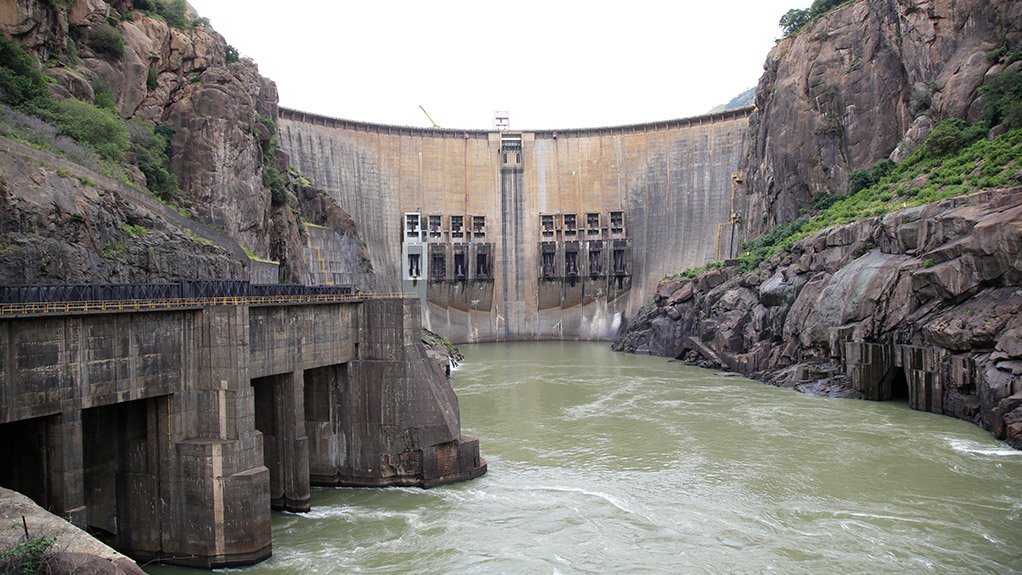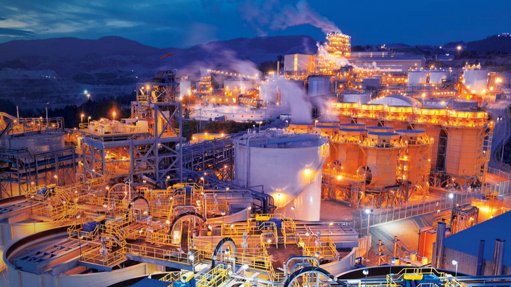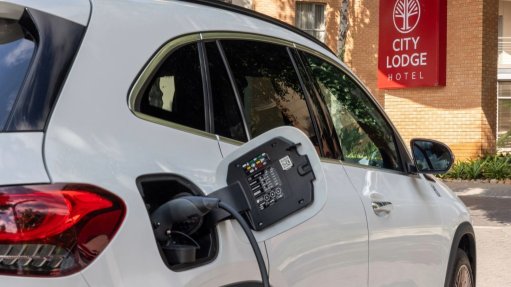Mozambique seeks to end 50-year hydropower pact with South Africa
Mozambique plans to end half a century of hydropower supply to South Africa’s State-owned electricity utility, raising risks for the continent’s most industrialized economy and threatening the viability of Africa’s second-biggest aluminum smelter.
In the country’s yet-to-be published energy transition strategy, a copy of which Bloomberg has seen, Mozambique details the plan to secure the 1,150 megawatts of power it sells to South Africa from its Cahora Bassa plant for its own use.
“The main short-term hydro priority is the repatriation of electricity from Hidroelectrica de Cahora Bassa currently exported to South Africa” when the contract ends on Dec. 31, 2030, the government said in the strategy document. Mozambique’s energy ministry didn’t respond to a request for comment.
The decision creates a headache for both South Africa — which is battling power cuts that are holding back economic growth — and South32 Ltd., which operates the Mozal aluminum smelter near Mozambique’s capital, Maputo, but uses electricity bought from South African utility Eskom Holdings.
South32 needs about 900 MW of electricity for Mozal’s output of aluminum, which the company markets as having been made with clean energy.
Because Mozambique’s grid isn’t linked nationally, Mozal — which produced 345 000 t last year — can’t get direct power supply from Cahora Bassa.
Instead, the 2 075 MW plant — Africa’s third-biggest for hydropower — sends electricity along 1 400 km of transmission lines to Eskom in South Africa, which then sells power to Mozal. The sales arrangement has been in place since 1979, when the last of the turbines was completed.
Past disruptions to supply — for example, when violent storms have toppled transmission lines — have worsened power cuts in South Africa.
“HCB’s electricity is cheap and clean,” the government said in the strategy document. “Important decisions will have to be made regarding HCB’s clean-energy trading end-destination.”
Mozambique plans to push for its renewable energy to be used in industrial parks to add value to its production of so-called green minerals such as lithium and graphite.
Eskom said it’s unaware of the desire to not renew the contract.
Should the contract not be renewed, Eskom may need to buy power from elsewhere and South32 will need to find another source of electricity, preferably from renewable sources. That’s so it won’t be subject to European Union taxes on exports under the bloc’s carbon border adjustment mechanism, which levies duties on carbon-intensive goods such as fertilizers, cement, iron, steel, and aluminum imported into the bloc.
NO ALTERNATIVE
South32’s supply deal with Eskom expires in 2026. The company has formed a working group with Eskom, HCB and the Mozambican government to extend the contract “as there are no viable alternative suppliers of renewable energy at the necessary scale,” it said in its 2023 sustainable-development report.
While Mozal buys power from Eskom, which produces almost all of its power from coal, there’s no guarantee that it’s the same electricity transmitted from Cahora Bassa. South32 has also proposed ring-fencing power from South Africa’s sole nuclear plant for its Hillside aluminum smelter in that country.
South32 didn’t respond to a request for further comment. Mozal is 63.7%-owned by South32, 24% held by South Africa’s Industrial Development Corporation, 8.4% owned by Mitsubishi Corp and the Mozambican government holds 3.9%.
Little Benefit
“To avoid a situation where the country’s largest electricity producer, the Cahora Bassa hydroelectric plant, exports energy to the region while the largest consumer imports Mozambique needs a unified electricity grid,” the government said in the document.
The Mozal plant employs too few people and benefits to the government in the form of taxes are limited, according to a person familiar with the government’s thinking.
Mozal employs about 1 000 people, accounts for 4% of Mozambique’s gross domestic product and paid $16-million in royalties and dividends to the government in South32’s last financial year, the company said in its sustainability report.
Sign up here for the twice-weekly Next Africa newsletter
Eskom said it’s pursuing the option of importing power from other sources. The utility scrapped a plan to import an additional 100 MW of electricity from Mozambique recently because of disagreements over price.
Article Enquiry
Email Article
Save Article
Feedback
To advertise email advertising@creamermedia.co.za or click here
Comments
Press Office
Announcements
What's On
Subscribe to improve your user experience...
Option 1 (equivalent of R125 a month):
Receive a weekly copy of Creamer Media's Engineering News & Mining Weekly magazine
(print copy for those in South Africa and e-magazine for those outside of South Africa)
Receive daily email newsletters
Access to full search results
Access archive of magazine back copies
Access to Projects in Progress
Access to ONE Research Report of your choice in PDF format
Option 2 (equivalent of R375 a month):
All benefits from Option 1
PLUS
Access to Creamer Media's Research Channel Africa for ALL Research Reports, in PDF format, on various industrial and mining sectors
including Electricity; Water; Energy Transition; Hydrogen; Roads, Rail and Ports; Coal; Gold; Platinum; Battery Metals; etc.
Already a subscriber?
Forgotten your password?
Receive weekly copy of Creamer Media's Engineering News & Mining Weekly magazine (print copy for those in South Africa and e-magazine for those outside of South Africa)
➕
Recieve daily email newsletters
➕
Access to full search results
➕
Access archive of magazine back copies
➕
Access to Projects in Progress
➕
Access to ONE Research Report of your choice in PDF format
RESEARCH CHANNEL AFRICA
R4500 (equivalent of R375 a month)
SUBSCRIBEAll benefits from Option 1
➕
Access to Creamer Media's Research Channel Africa for ALL Research Reports on various industrial and mining sectors, in PDF format, including on:
Electricity
➕
Water
➕
Energy Transition
➕
Hydrogen
➕
Roads, Rail and Ports
➕
Coal
➕
Gold
➕
Platinum
➕
Battery Metals
➕
etc.
Receive all benefits from Option 1 or Option 2 delivered to numerous people at your company
➕
Multiple User names and Passwords for simultaneous log-ins
➕
Intranet integration access to all in your organisation





















